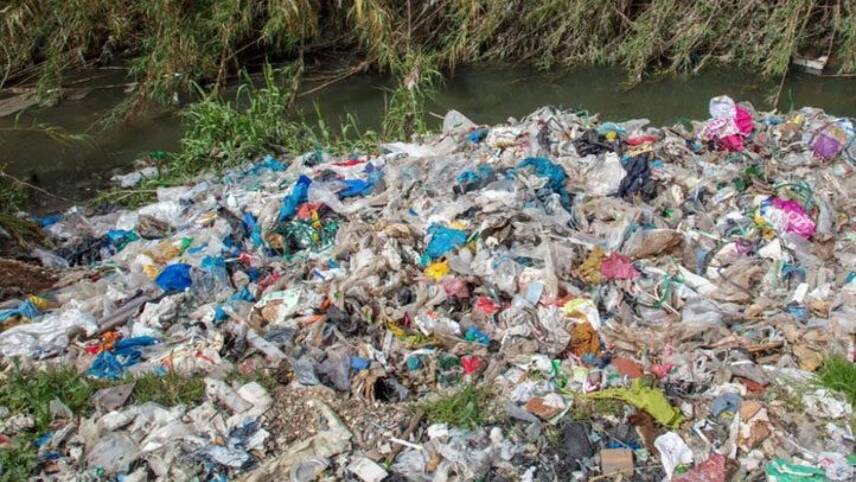Register for free and continue reading
Join our growing army of changemakers and get unlimited access to our premium content

Pictured: Plastic waste dumped illegally in Turkey. Image: Caner Ozkan / Greenpeace
Turkey first introduced the ban on imported PET, HDPE and LDPE earlier this month, following a confirmation of changes to the law in May. That decision was taken after a Greenpeace investigation found that the majority of plastic exported to Turkey is not actually recycled as per the requirements of waste transfer contracts – much of it ends up in landfills, in incinerators, as litter or in illegal dumping sites. Greenpeace’s investigation of 10 sites found that they are more likely to be in low-income neighbourhoods and that many contain waste that is traceable to the UK, Germany and other developed European nations.
Pre-ban, Turkey was one of the world’s largest plastic waste importers, following the introduction of bans on certain kinds of materials in nations such as China. Greenpeace estimated that Turkey received 40% of the UK’s plastic waste in 2019.
The nation could soon regain this status. In its official gazette, the Turkish Government announced that it has repealed a ban on PET plastic imports, effective immediately. HDPE and LDPE will continue to be banned, however.
There was no detail in the gazette as to why this decision was taken. However, Greenpeace is stipulating that the Turkish Government has “succumbed to industry lobbying”, citing recent meetings between Ministers and the PAGDER Turkish Plastics Industrialists’ Association.
“UK plastic sent to Turkey is being dumped and burned, with serious environmental and social consequences for local people,” Greenpeace UK’s political campaigner Megan Randles said.
“With the Turkish government stalling on their own restrictions, the UK Government must even more urgently ban all plastic waste exports and stop our plastic mess impacting other countries.”
Randles added: “We also need legislation to make UK companies reduce the amount of plastic they produce in the first place.”
In its Manifesto ahead of the 2019 General Election, the Conservative Party pledged to end exports of plastic waste to developing nations – both because of the environmental and social issues which can result and due to an appetite to grow the UK’s domestic recycling sector after Brexit. The commitment is also noted in the Environment Bill.
However, MPs and green groups have voiced concerns that the UK will fail to deliver on this pledge.
On reducing plastic production, the UK will have a new tax coming into force in April 2022, applicable to the producers of all plastic products and packaging that do not contain at least 30% recycled content. However, the broader Resources and Waste Strategy, which will include new extended producer responsibility (EPR) rules for businesses, has been delayed due to Covid-19. All consultations that were due to begin in 2020 are now beginning in 2021.
Join the conversation at edie’s Earth Overshoot Day webinar
Thursday 29 July 2021 marks Earth Overshoot Day – the calendar date at which humanity will have used up nature’s resource budget for the entire year.
To mark the occasion and help organisations of all sizes and sectors accelerate the transition to a circular economy, edie is hosting a free webinar at 1PM BST. Hosted in association with Centrica Business Solutions, the hour-long session will feature expert speakers from Elvis & Kresse, ReLondon and Centrica Business Solutions.
For a full agenda and to register for the webinar, click here.
Sarah George


Please login or Register to leave a comment.